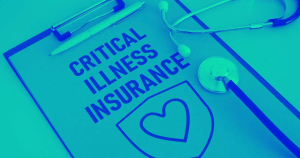You may already have medical, dental, and vision insurance, plus a flexible spending account for added protection. But what happens if you’re injured in an unexpected accident? Even the most comprehensive health insurance may not cover all of your costs.
That’s where accident insurance comes in. It provides cash benefits that can help you pay for expenses health insurance doesn’t fully cover—such as transportation, rehabilitation, childcare, and even groceries. This way, you can focus on recovery without worrying about finances.
In this article, we’ll break down why accident insurance may be worth considering and explore four key reasons to add it to your financial protection plan.
What Is Accident Insurance?
Accident insurance is a supplemental insurance policy that pays you a lump sum if you experience a covered accidental injury. Unlike health insurance, which pays providers, accident insurance pays directly to you. That means you can use the funds however you see fit.
For example, let’s say you fall from a ladder while changing a lightbulb. You could face a series of expenses:
-
An ambulance ride to the ER
-
Hospital stay and medical procedures
-
Prescription medications
-
Crutches and physical therapy
-
Missed time from work
-
Daily living costs like groceries and transportation
With accident insurance, you’d receive a payout that you can use toward any of these expenses.
1. Accidents Happen More Often Than You Think
We often assume accidents are rare, but the numbers tell a different story. U.S. emergency rooms receive about 38 million visits every year due to unintentional injuries. Children are especially vulnerable: more than 775,000 kids under 14 are treated annually for sports-related injuries.
Whether it’s a car accident, a slip at home, or an unexpected sports injury, accidents can happen to anyone. Having an extra layer of financial protection ensures you and your family won’t be caught off guard.
2. Accidents Can Disrupt Your Income
Medical expenses aren’t the only financial burden after an accident. You may need time off work for recovery, follow-up care, or physical therapy. In more severe cases, you might be unable to work at all.
Accident insurance helps replace lost income by giving you cash benefits you can use to keep up with bills, rent, groceries, and childcare. This financial cushion can prevent your accident from turning into a long-term money crisis.
3. Coverage Is Easy and Portable
Unlike other insurance policies, accident insurance usually comes with:
-
Guaranteed acceptance (no medical exams or health questionnaires)
-
Easy payroll deductions if purchased through your employer
-
Portability, meaning you can often take your plan with you if you change jobs
That makes accident insurance one of the most accessible ways to add extra protection—no matter your health history or employment situation.
4. It Covers More Than Just Injuries
Accident insurance isn’t limited to ER visits and broken bones. Many policies also provide benefits for:
-
Accidental death
-
Limb loss
-
Paralysis
-
Blindness
These additional protections ensure that your family has financial support if a serious accident changes your life.
How to Get Accident Insurance
The easiest way to enroll is often through your employer during open enrollment. Benefits of choosing a workplace plan include:
-
Convenience: no need to shop around individually
-
Affordable premiums, often deducted directly from your paycheck
-
Coverage for your spouse or children, if you add them to your policy
If your employer doesn’t offer it, you can also purchase accident insurance directly from an insurance provider.
Final Thoughts
Accidents are unpredictable, but your financial security doesn’t have to be. Accident insurance provides flexible coverage that helps pay for medical expenses, household bills, and lost income when you need it most.
If you’re looking for an affordable way to strengthen your safety net, accident insurance may be worth the investment—especially if you have kids, play sports, or simply want peace of mind in case the unexpected happens.







